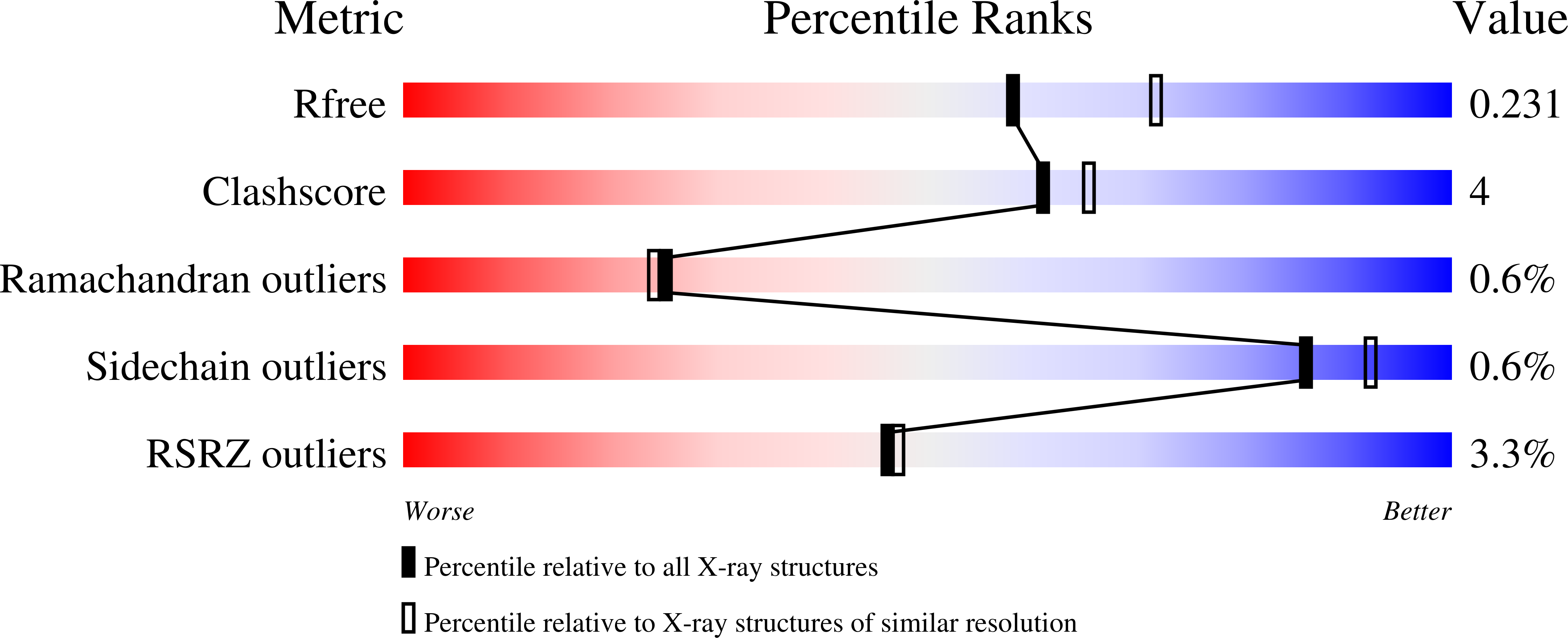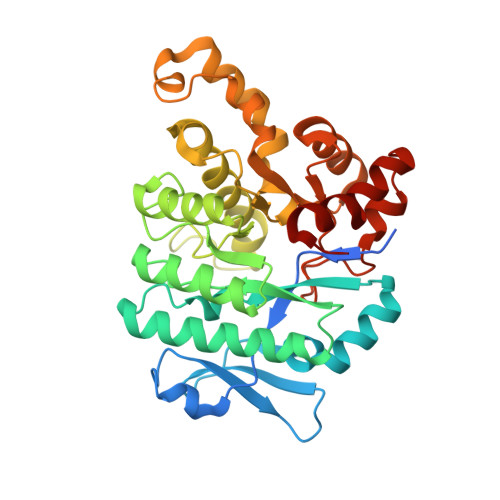Diflunisal Derivatives as Modulators of ACMS Decarboxylase Targeting the Tryptophan-Kynurenine Pathway.
Yang, Y., Borel, T., de Azambuja, F., Johnson, D., Sorrentino, J.P., Udokwu, C., Davis, I., Liu, A., Altman, R.A.(2021) J Med Chem 64: 797-811
- PubMed: 33369426
- DOI: https://doi.org/10.1021/acs.jmedchem.0c01762
- Primary Citation of Related Structures:
7K12, 7K13 - PubMed Abstract:
In the kynurenine pathway for tryptophan degradation, an unstable metabolic intermediate, ¦Á-amino-¦Â-carboxymuconate-¦Å-semialdehyde (ACMS), can nonenzymatically cyclize to form quinolinic acid, the precursor for de novo biosynthesis of nicotinamide adenine dinucleotide (NAD + ). In a competing reaction, ACMS is decarboxylated by ACMS decarboxylase (ACMSD) for further metabolism and energy production. Therefore, the inhibition of ACMSD increases NAD + levels. In this study, an Food and Drug Administration (FDA)-approved drug, diflunisal, was found to competitively inhibit ACMSD. The complex structure of ACMSD with diflunisal revealed a previously unknown ligand-binding mode and was consistent with the results of inhibition assays, as well as a structure-activity relationship (SAR) study. Moreover, two synthesized diflunisal derivatives showed half-maximal inhibitory concentration (IC 50 ) values 1 order of magnitude better than diflunisal at 1.32 ¡À 0.07 ¦ÌM ( 22 ) and 3.10 ¡À 0.11 ¦ÌM ( 20 ), respectively. The results suggest that diflunisal derivatives have the potential to modulate NAD + levels. The ligand-binding mode revealed here provides a new direction for developing inhibitors of ACMSD.
Organizational Affiliation:
Department of Chemistry, University of Texas at San Antonio, San Antonio, Texas 78249, United States.

















